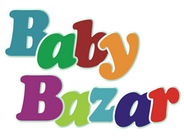An Ultimate Guide for What to Eat During Pregnancy. Best Foods in Pregnancy You Should Know About.
Posted by HIRA ZAFAR

An Ultimate Guide for What to Eat During Pregnancy. Best Foods in Pregnancy You Should Know About.

Being pregnant is one of the most incredible experiences a woman can have in her life. Women who have had the honor of carrying and bearing children understand exactly what I mean. One of life's greatest miracles is the capacity to become pregnant and carry a child inside of you while it grows into a fully formed infant. Despite all of its advantages, pregnancy is not without its challenges.
You should eat more protein, calcium, iron, and vital vitamins while you are pregnant. Consuming a wide range of lean meat, fish, whole grains, and plant-based foods will provide you with these nutrients.
It's important to eat a variety of meals every day even if you don't need to follow to a particular diet. You need to make sure that you and your child are getting the right quantity of nutrients.
When you are pregnant you need to consume entire meals. This is the best method to guarantee that you get all the vitamins and minerals you require. But along with that if you're pregnant, you also need to take a folic acid supplement.
Best foods in Pregnancy
If you want to live a healthy life, you need to eat well, but if you're pregnant or planning to become pregnant, this is even more important. A nutritious diet will promote the growth and development of your unborn kid. Here is a list of healthy foods which you should use in pregnancy.
Dairy Products

You need to take more protein and calcium throughout your pregnancy, to meet the needs of your developing child. The menu should include milk, cheese, and yoghurt.
Dairy products contain two forms of excellent proteins called "casein" and "whey." Dairy is the best source of calcium and contains large levels of
- Phosphorus,
- Vitamin B,
- Magnesium, and
Since Greek yoghurt contains more calcium than the bulk of other dairy products, it is favorable in particular. Some varieties contain probiotic bacteria that support digestive health. You might be able to handle yoghurt, especially probiotic yoghurt, if you have lactose intolerance. You need to ask your doctor whether you are allowed to test it or not.
Sweet Potatoes

All of us love sweet potatoes. In addition to being tasty prepared in countless ways, sweet potatoes are also a good source of beta carotene, a plant compound that your body uses to make vitamin A.
The development of a child requires vitamin A. Just watch out for toxicity if you consume too much vitamin A from animal sources, including organ meats. High quantities of Trusted Source
The abundant plant source of beta carotene and fibre found in sweet potatoes is a blessing. In addition to preventing blood sugar spikes and enhancing digestive health, fibre keeps you fuller for longer (which can really help if that pregnancy constipation hits).
Use sweet potatoes as the foundation of your avocado toast for a delicious breakfast.
Eggs

Eggs are amazing, edible and healthiest food you can eat since they have a small amount of practically every nutrient you require. One large egg contains nearly 80 calories, good protein, fat, and a variety of vitamins and minerals.
Eggs are a good source of choline, a key vitamin needed during pregnancy. It promotes:
- Appropriate brain and spine development
- Essential for a baby's brain development
Approximately 147mg of choline can be found in one entire egg, which brings you closer to the current daily choline intake recommendation of 450 mg.
Veggies and Fruit during Pregnancy

You need to consume a lot of fruit and vegetables since they are rich in vitamins, minerals, and fibre, which promote healthy digestion and can help prevent constipation.
Consume at least 5 servings of fruit and vegetables each day, in any combination.
- Fresh,
- Frozen,
- Canned,
- Dry, or
- Juice varieties.
Whole Grains

Compared to refined grains, whole grains are much higher in
- Fibre,
- Vitamins, and
- Plant-based nutrients.
Instead of white bread, spaghetti, and white rice, considers oats, quinoa, brown rice, wheat berries, and barley.
Two examples of grains that are both healthful and contain a fair amount of protein are oats and quinoa. Additionally, B vitamins, fibre, and magnesium are stimulated, all of which are typically lacking in pregnant women.
There are many ways to include healthful grains into any recipe, but we highly recommend a bowl of quinoa and roasted sweet potatoes.
Dried Fruit

Dried fruit generally has a lot of calories, fibre, and many vitamins and minerals. Dried fruit offers the same amount of nutrients as fresh fruit despite being much smaller and devoid of water.
One serving of dried fruit contains significant amounts of several vitamins and minerals, including folate, iron, and potassium.
Prunes are an excellent source of fibre, potassium, and vitamin K. They can help with constipation and are powerful natural laxatives. Dates are rich in plant compounds, potassium, fibre, and iron.
But dried fruit also has a lot of natural sugar in it. Avoid the candied variety as they have even more sugar in them.
Water

We all need to drink enough water, particularly women who are pregnant. During pregnancy, the blood volume increases by about 45%, according to a trustworthy source.
Your body will hydrate your unborn kid, but this increase the risk of dehydrated for you, if you don't drink enough water.
Mild dehydration can cause:
- Headaches,
- Anxiety,
- Fatigue,
- A bad mood, and
- Memory loss.
In addition to lessening constipation, drinking more water may help you avoid urinary tract infections, which are common during pregnancy.
Conclusion
A healthy, well-nourished pregnancy could be possible with the help above mentioned food list. A well-rounded diet consisting of whole grains, fruits, vegetables, lean proteins, and healthy fats will give your developing baby all the nutrients they need to grow and develop.
Keep your doctors update about your eating habits and allow them to advise you on a diet with any required supplements.











